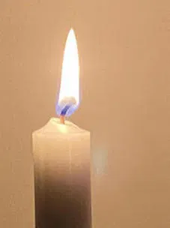Assisted Dying Bill and Dignity in Dying

Image: ICN/JS
The proposed Assisted Dying Bill to be introduced in Parliament tomorrow will radically change how we care for the sick and elderly.
I have accompanied six people at the end of their lives to their deaths. Every death is different, but all valued a caring presence being with them on their final journey to a natural death. It was an immense and valued privilege.
At one time people died within the family home surrounded by loved ones and cared for by them. Nowadays families live further apart and often hand over relatives care as for various reasons they are not always able to continue be a physical supportive presence.
I have long thought that communities, churches and other faith groups should train people to be dying partners rather as expectant mothers choose a birthing partner.
Why do we today impose limits on human worth? Why are we afraid of incapacity and dependence on others as we age? We do not apply the same criteria on babies? I was shocked to hear recently a daytime TV doctor say that loss of dignity through incontinence was a valid reason for assisted dying.
My father was war disabled and I was born after he had an operation that went wrong and left him 100per cent disabled. Growing up with a disabled parent meant I never saw disability as alien. He never complained at no longer being the dashing army officer and active sports player he had been. He took three years to recover from the operation and weighed less than six stones for a while.
He adapted, learning to drive a hand-controlled car and taking an office desk job .Often I wasn't fully aware of what he endured because of what he achieved as a loving father to me, finding joy in the many things we shared as a family.
He died prematurely in 1976 on the operating table from a stomach haemorrhage caused by the powerful painkillers he was prescribed for years. I remember my mother often saying that if the Nazis had invaded, he might well have been eliminated by euthanasia as not meeting their limited criteria of a viable human being.
Both my mother and my aunt had made it known that if they became mentally incapacitated by dementia, they wanted euthanasia. However later they both changed their minds and I assisted them both to a natural, and happy death through prayer, love and reassurance - both knowing they were loved and going to a Greater Love and be re-united with others they had known who were waiting for them.
My aunt had joined Exit (now Dignity in Dying), much to the horror of my mother. Seeing how my mother later found contentment through dementia, and good care, she also changed her mind. Legalising assisted dying as planned in the forthcoming bill could overlook a changed position on the subject.
Better funding and provision for end-of-life care in nursing homes and hospitals is needed, some are excellent, others not so, as I experienced over eighteen years. In the case of my mother I found a good home that necessitated the sale of our family home and my own considerably reduced circumstances as a result. However, it also brought many rewards.
I was able to continue to be a loving presence and share her journey to a happy death over nearly six years and not the six months originally diagnosed. As others have written, diagnosis is difficult and often inaccurate. She had ischemic heart disease, vascular dementia and two forms of cancer. It taught me much about living in the present moment and finding joy in little things together. I wrote about this in Pastoral Review in 2008.
The option of assisted dying, state euthanasia, may seem an easier way for some who may convince themselves it is the kinder option. Indeed older people might be persuaded to opt out so as not to be "a burden".
However, to hear a recent advert for a noted dementia charity with a celebrity actor saying that those with dementia are "dying again and again and again" bolsters negative views of the lives of those with dementia.
There is a very strong likelihood that the Assisted Dying Bill will rapidly open the door to families seeking to "release "family members and free them from astronomical bills - our free NHS care system does not cover dementia as many have discovered.
In countries such as Canada and the Netherlands depression even amongst teenagers has become an acceptable reason for terminating a life.
Many MP's are undecided on their position. I urge all with experience of caring to write to their MP's expressing their concern at the forthcoming bill and it's likely consequences without delay.
There are resources on the Bishops' Conference website that explain why we oppose assisted suicide, provide answers to FAQs, enable Catholics to quickly and easily contact their MP, provide resources on hospice and end-of-life care, downloadable A4 posters for parishes and more. See: www.cbcew.org.uk/opposing-assisted-suicide/


















